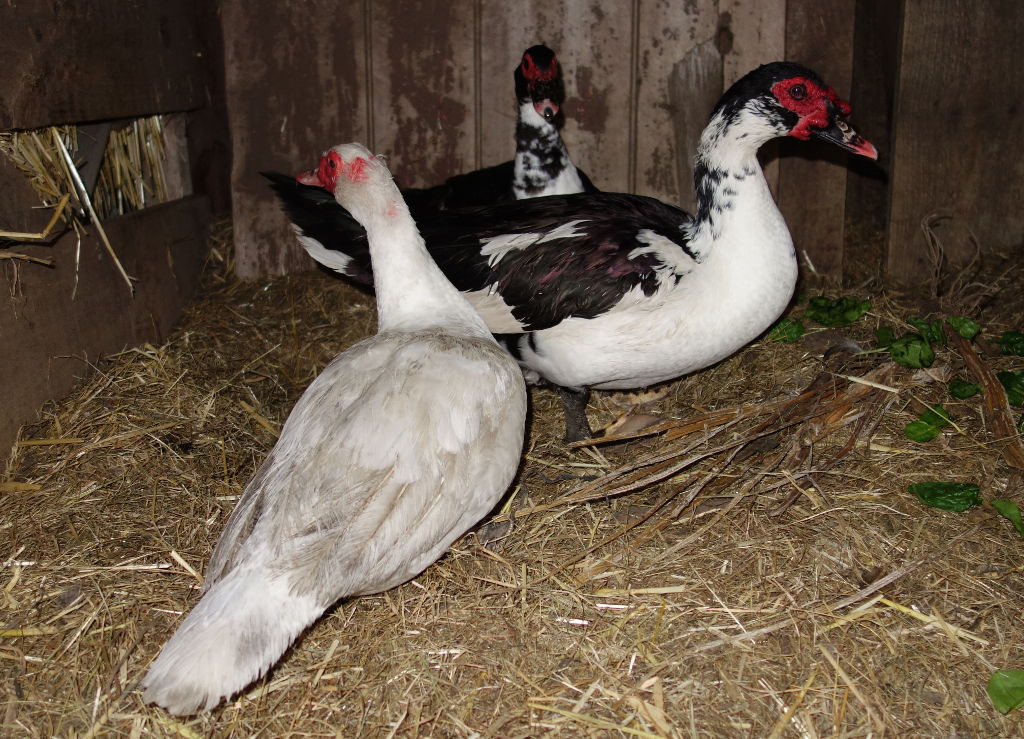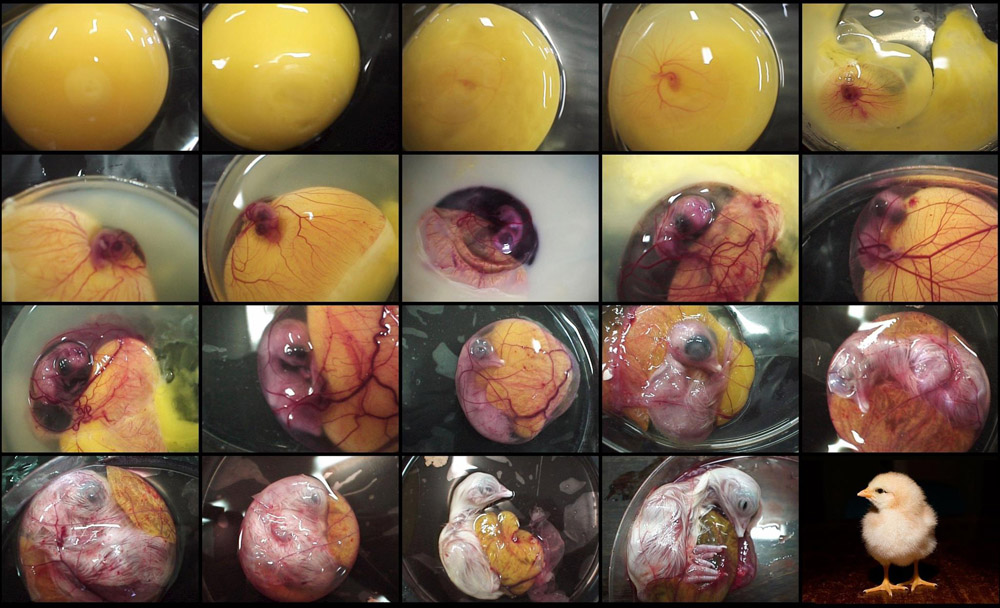Back in 2016, we decided to get some Muscovy ducks. We obtained a drake and two females in exchange for a few peafowl in desperate need of re-homing (they were crapping on our roof and scratching up the car), and shortly thereafter purchased two more females from a nice bloke in the Huon Producers Network.

Continue reading
Tag Archives: Poultry
Hatching Eggs – The Broody Hen
So you have decided to hatch some chicken eggs and keep chooks. Whether you are doing it for purely utilitarian reasons, educational reasons or because you have a terrible chicken addiction (I may possibly fall into this last category) there are a few important basics to get your head around.

To hatch eggs you are going to need either a reliable broody hen or an incubator. Sadly Barnevelders, despite being the best chickens in the world from every other perspective, do have the slight failing that they do not have a great propensity for sitting. Consequently I hatch most of my eggs in incubators, although I am trying to breed some mothering back into my trusty Barnies. If your hens are not good sitters you can get in a hen or hens for the purpose of sitting otherwise it’s incubators. The very silly looking Silkie chickens are excellent sitters, but their extremely docile nature can mean they get bullied by other birds.
There is no way to make a hen go broody. Locking her in a box with eggs will not make her sit. Don’t do this. However if a hen is broody when you don’t want her to be you can put her in a cage with the wire side under her and hang it up. Because she can’t make it warm underneath her she will give up after two or three days.
One of the most common questions I am asked is how one knows if a hen is really sitting or if she will give up. The truth is one never really knows, though if a hen has successfully sat before she is more likely to stay sitting. Once the hen has been sitting for three days she might be broody. Put your hand near her head and see how she reacts. She may make a low trilling noise as your hand approaches or she may peck you. If she does both of these things then she may well be serious.
Don’t worry if she is sitting on eggs that are not the ones you want to hatch. Once you have ascertained that she is serious you can easily swap these eggs for the ones you want her to incubate. The best time to swap eggs is at night. Chickens’ brains go into neutral in the dark so they are much less likely to react to your actions at night. To swap eggs first make sure the eggs you are going to put in are not freezing cold. Is she is serious she will have pulled feathers out of her breast to make a bare patch so that the eggs have good contact with her skin to keep warm. She may well reject cold eggs, pushing them off the nest.
A sitting hen needs a nice dry, secure location to sit. It should be rat, snake and other vermin proof. Nesting boxes in the hen house are a good option as then the hen will still benefit from the protection of her vigilant bloke, should she have one. Nesting boxes should be placed lower than roosts as otherwise non broody birds will try to roost in them in their quest to be roosting highest. However they should not be placed underneath where other birds roost or they will soon become contaminated with manure. If a hen pushes eggs out of the nest it is most likely because the eggs are rotten so don’t go putting them back under her.
It is also vital that a broody has excellent pest control. She is literally a sitting target and will accumulate a lot of insect pests if you don’t take care. Plenty of Diatomaceous Earth is the best thing. See this post for information on what it is and how it works.
There are some drawbacks to having a broody in the house with other hens. Hens may try to steal eggs from under a broody or they may try to usurp her nest. This results in eggs being damaged or not being continuously sat on and thus the incubation temperature not maintained. For these reasons you might like to make your broody’s spot inaccessible to other hens.
If you are going to enclose your broody remember that she needs enough space to get off her nest to toilet and to eat. You want her to be toileting as far from the nest as possible in order to avoid contamination of eggs, which can result in rotten eggs. She should get up once or twice a day but she won’t stay up for long as the eggs will soon get cold.
Because they don’t get up for long it is important to provide sitting hens with excellent quality feed. A good grain mix is essential, as are green vegetables, spinach is excellent. Because hens lose a lot of weight while sitting, foods that are high in fat are also a must. I feed mine bacon with plenty of fat on it. Having high quality food available at all times in one reason you need a vermin proof enclosure.
Chicken eggs take 21 days to incubate, however development doesn’t start until the eggs have been at the right temperature for at least 16 hours. Incubation time is affected by temperature. If it has been very cold the eggs will hatch a bit later and vice versa if it has been very hot. Don’t panic if you haven’t seen any chicks after 21 days. The very worst thing you can do is disturb the hen to look. Once the chicks do hatch they will not come out from under their mum for at least a full day. In this time they dry out and recover from the very hard work of getting out of their egg. They don’t all hatch at exactly the same time so the hen won’t move until as many as she thinks will hatch do so.
If there is no sign of chicks after 25 days then is the time to investigate. At night, take the eggs out and shine a strong light through them, making sure you keep them warm while you do so. This is easily achieved by placing the egg on the end of a toilet roll and shining a light through the roll in a dark room. You should be able to see a big air bubble at the blunt end of the egg while the rest of the egg is opaque. If you don’t see this then the eggs have not developed. If the entire egg is dark the egg is probably rotten.
Do not let your hen sit for longer than four weeks. If the eggs haven’t hatched by this time they never will and the hen can die of starvation if she remains sitting. She will need a good month to regain her normal weight before she can sit again. Sadly hens are often more determined to sit than aware of this fact so then it is necessary to take matters into your own hands and put her in the hanging cage.
Once your eggs have hatched the chicks will need good quality food. They don’t eat for at least 24 hours after hatching as just before they hatch they absorb the remaining part of the yolk and this feeds them for that time. After that they need green food immediately and a good chick starter as well as fresh, clean water.
I always put crushed, dried chilli, whole garlic cloves and apple cider vinegar into all my birds’ water. You need to get a good cider vinegar that says “with the mother”. The mother is the active part of the vinegar and vinegars without this are lacking the necessary nutrients. About a teaspoon of chilli, one clove of garlic and 20mls of apple cider vinegar per 5 litres of water is all that is required. Making sure these are in your birds’ water will help to avoid disease outbreaks.
I eat my birds and so I use Tasmanian Seedhouse starter as it is the only one available here that doesn’t have medication in it. Unless one is crowding a lot of birds into a too small space, or not practicing good hygiene one is unlikely to actually need this medication. If you can’t find a chick starter that doesn’t have medication look for a game bird starter as they often don’t have medication.
Once the chicks are able to be out foraging with their mum they need protection from predators that allows them access to green food as soon as possible. I keep mine in netted yards until they are twelve weeks old or they get gobbled up by hawks, owls and eagles. Birds raised by a hen really do do better than those raised in incubators. I suspect this is because they learn to eat a wider range of foods. Incubator raised birds often have to be taught to eat slugs and snails for example. If they don’t encounter these nutritious treats when they are first learning to eat they don’t seem to learn that they are food. They will eventually learn to eat them if put with other birds that eat them but having a good mum is vital to success!
